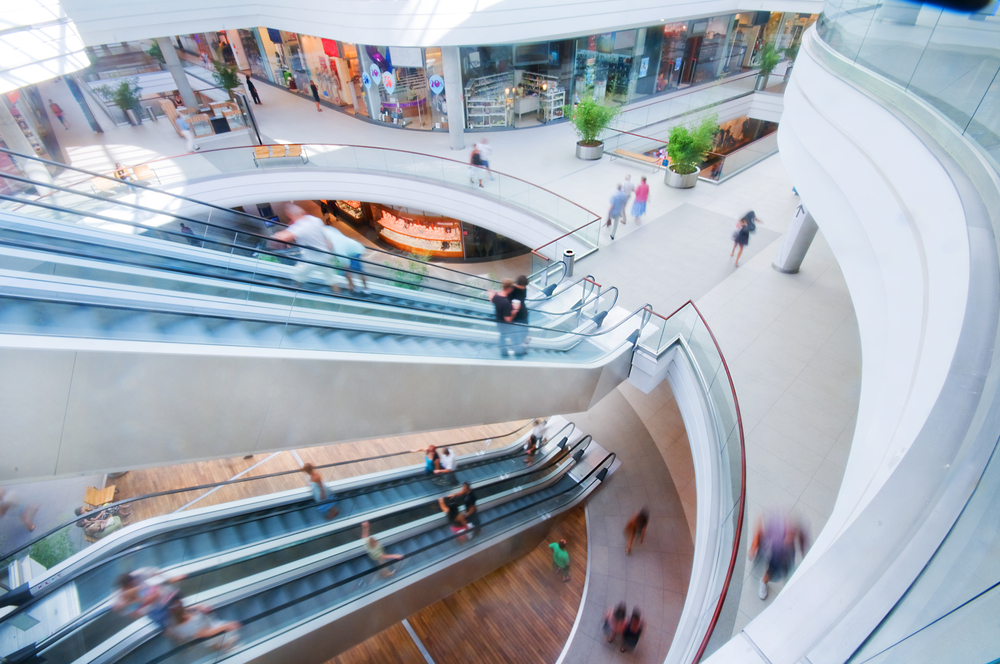The Future of Shopping Centers

Lifestyle hubs instead of retail centers – a new, innovative phase is breaking in the shopping center market – which is also a time of recollection and revitalisation.
Revitalise or die!
Work has been underway for over 15 years to build and shape recreational consumption temples. The trend of the ‘urban mall’ saw the market explode for a few years, but now, the experts agree: the market in Europe is saturated. Now the question has arisen: How do shopping centers in Germany have to change due to the current stagnation, so that they will not become dying centers in the near future?
To create forward-thinking centers, operators are currently focusing on three factors driven by new technologies:
- High customer service
- High entertainment and experience factors
- High value of orientation and convenience
Networking becomes service
Digitisation is currently the most important trend when it comes to the future of retail and shopping centers. In recent years, much experimentation has been done to reach the mobile, digital customer and invite them to stay longer.
The digital innovations preferred by the customer are often those in the background, such as in information transmission, logistics and payment, or before and after the shopping center stay, for example, through inspiration via social media in advance.
Convenience through technology is a big progressive trend, especially with younger generations!
The digital service-power in the shopping centers

VIP service in the shopping center
In the future, service offerings will be even more crucial. Similar to the availability of products and the environment, the right service offering is becoming a key factor. After all, you can buy almost any product online, so an exclusive, feel-good service and experience are what drives consumers to visit a center.
The hyper-proximity to the new customer
Many trade concepts fail when the right infrastructure or location is not available. In order to generate proximity, urban planning, as well as the social-cultural embedding in the environment is crucial.
Cities are fiercely competitive markets when it comes to footfall volume and many urban shopping centers lack that unique selling proposition. For shopping centres to compete, they need to focus on community events and offerings, from co-working spaces to local and exclusive supper clubs designed to bring local people closer to the shopping center. The aim is to make the shopping center more lively and integrated and to facilitate a mutually enriched retail and technology environment – driving footfall and encouraging consumers to travel and visit a center.
From health centers to green buildings: lifestyle hubs for future generations
Shopping centers have already started to become lifestyle hubs: places where you meet friends and colleagues, where you work, where you feel at home, where you visit your health adviser, where you live, eat and shop – in short: places where you spend your everyday life. Shopping becomes a minor matter at these lifestyle hubs. Because the future consumers want more, shopping needs meaning. They care about community-feeling, interpersonal interaction and the environment, so providing relevant services beyond shopping is a must. Three megatrends, in particular, will push the evolution of shopping centers towards lifestyle hubs: health, education and sustainability.
To conclude…
The market for shopping centers is stagnating in Europe so it is important to optimise and revitalise existing centers. Only those who utilise technological trends to offer the best possible customer-oriented service for the visitors will be successful.
A central location is no longer everything, it’s the proximity to the customer. Shopping malls of the future not only integrate themselves architecturally in the environment but must also interact with the local community.
The megatrend, sustainability, not only leads to environmentally friendly and resource-saving construction and maintenance, but also to events around sustainable topics and a tenant mix that shares these values.
Shopping centers are becoming lifestyle hubs. Shopping is just one factor; quality of stay can be improved by developing hybrid concepts with a mix of retail, gastro, entertainment, education and health services.
